HSLS offers classes on database searching, software applications such as Adobe Photoshop, bibliographic management, molecular biology and genetics, and library orientations. For more information, visit the online course descriptions.
Classes are held on the first floor of Falk Library (200 Scaife Hall) in classroom 1 and conference room B, and on the second floor in the Computer and Media Center classroom 2. Some classes are also held in the conference room at UPMC Shadyside Libraries. All classes are open to faculty, staff and students of the schools of the health sciences at the University of Pittsburgh and UPMC.
No registration is required for any of these classes. Seating for classes is first-come, first-served, until the class is full.
Classes marked with an asterisk (*) qualify for American Medical Association Category 2 continuing education credit.
Class schedules are subject to change. Please consult the online class calendar for the most current information.
HSLS ORIENTATION
Introduction to HSLS Resources and Services at Falk Library
Offered upon request to groups or individuals. Call 412-648-8796.
Introduction to HSLS Services at UPMC Shadyside
Offered upon request to groups or individuals. Call 412-623-2415.
SEARCHING DATABASES
PubMed Basics* (Falk Library Classroom 1)
Tuesday, March 16 1-2:30 p.m.
Tuesday, April 6 9:30-11a.m.
MOLECULAR BIOLOGY AND GENETICS RESOURCES
Microarray Data Analysis* (Falk Library Conference Room B)
Wednesday, March 3 1-3:30 pm.
Peptide Mass Fingerprinting for Protein Identification* (Falk Library Conference Room B)
Wednesday, March 17 1-3:30 p.m.
Bioinformatics for Proteomics Studies* (Falk Library Conference Room B)
Wednesday, March 24 1-3:30 p.m.
DNA Analysis Tools* (Falk Library Conference Room B)
Wednesday, March 31 1-3:30 p.m.
Gene Regulation Resources* (Falk Library Conference Room B)
Wednesday, April 7 1-3:30 p.m.
Protein Sequence Analysis* (Falk Library Conference Room B)
Wednesday, April 14 1-3:30 p.m.
Sequence Similarity Searching* (Falk Library Conference Room B)
Wednesday, April 21 1-3:30 p.m.
Cancer Informatics* (Falk Library Conference Room B)
Wednesday, April 28 1-3:30 p.m.
SOFTWARE TRAINING
EndNote Basics (Falk Library Classroom 2)
(Note: This class is usually full. Please arrive 15 minutes in advance to ensure seating.)
Wednesday, March 24 1-3 p.m.
Monday, April 12 11 a.m.-1 p.m.
Adobe Photoshop for Beginners (Falk Library Classroom 2)
Thursday, March 25 10 a.m.-noon
Thursday, April 22 10 a.m.-noon
PowerPoint for Beginners (Falk Library Classroom 2)
Thursday, April 29 10 a.m.-noon
Advanced PowerPoint for Presentations (UPMC Shadyside Libraries)
Tuesday, April 13 11 a.m.-1 p.m.
PowerPoint for Beginners and Advanced PowerPoint (Falk Library Classroom 2)
Thursday, April 8 10 a.m.-2 p.m.
The WOW Factor: PowerPoint for Posters (Falk Library Classroom 2)
Thursday, April 1 10 a.m.-noon
Hands-On Classes
Searching for Nursing Articles Using CINAHL (UPMC Shadyside Libraries)
Tuesday, March 23 8:30-9:30 a.m.
Finding Full-Text Articles (UPMC Shadyside Libraries)
Friday, March 5 Noon-1:30 p.m.
Also offered upon request to groups or individuals. Call 412-623-2415.
Search for Evidence: Locating Evidence Based Health Care Information
(UPMC Shadyside Libraries)
Monday, April 26 9-10 a.m.
LUNCH WITH A LIBRARIAN
These informal, brown-bag lunches are held in Falk Library conference room B. Bring your own lunch. Drinks and dessert are provided. For more information, visit the online descriptions.
Google Scholar vs. MEDLINE for Health Sciences Literature Searching
Monday, March 15 Noon-1 p.m.
Let’s be Creative. Jazz Up Your Fliers and Presentations
Monday, March 29 Noon-1 p.m.
May We Suggest Something in a Gene…?: Sensors, Database Ads, and Other PubMed Discovery Features
Thursday, April 15 Noon-1 p.m.
Thursday @ Three HSLS UPMC Shadyside Libraries Information Series
These informal sessions are held in the Conference Room at UPMC Shadyside Libraries.
CME for Free
Thursday, March 18 3-4 p.m.
Guidelines, Appropriate Use Criteria, Expert Opinion—Oh My!
Thursday, April 1 3-4 p.m.
CUSTOMIZED CLASSES
Customized classes can be developed for your department, course, or other group.
LEARNING @ YOUR PACE
These online tutorials provide information on getting started at HSLS, focusing on the Web site and popular resources.
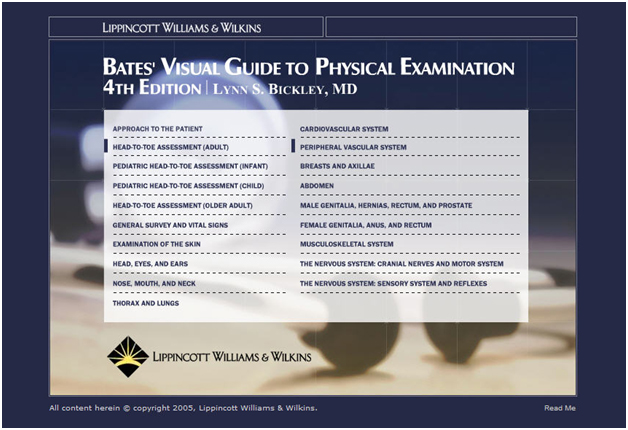

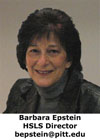 At the beginning of February, Pittsburgh was subjected to an exceedingly large snowfall. As a result, the University and its libraries were forced to close for three workdays as workers struggled to clear the streets and sidewalks.
At the beginning of February, Pittsburgh was subjected to an exceedingly large snowfall. As a result, the University and its libraries were forced to close for three workdays as workers struggled to clear the streets and sidewalks. You are probably familiar with how to search for relevant research articles using
You are probably familiar with how to search for relevant research articles using 
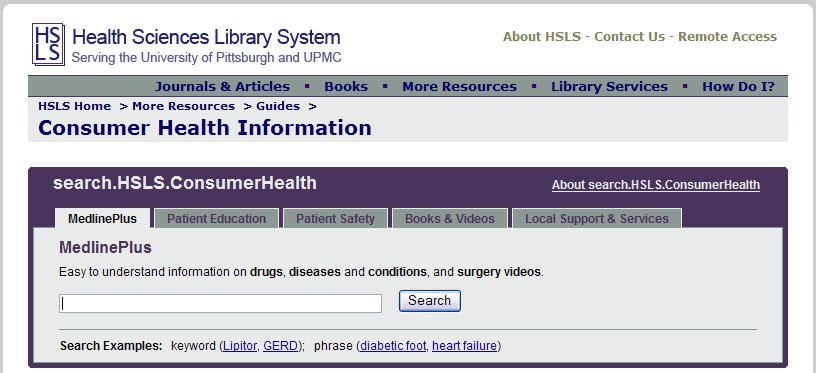
 Also in November, Fredrick D. Cason Jr., surgeon-in-chief, Louis Stokes Veterans Affairs Medical Center and associate professor of surgery, Case Western Reserve University School of Medicine, gave a public presentation on “The African American Surgeon: A Century of Growth.”
Also in November, Fredrick D. Cason Jr., surgeon-in-chief, Louis Stokes Veterans Affairs Medical Center and associate professor of surgery, Case Western Reserve University School of Medicine, gave a public presentation on “The African American Surgeon: A Century of Growth.”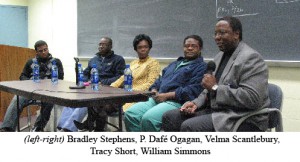
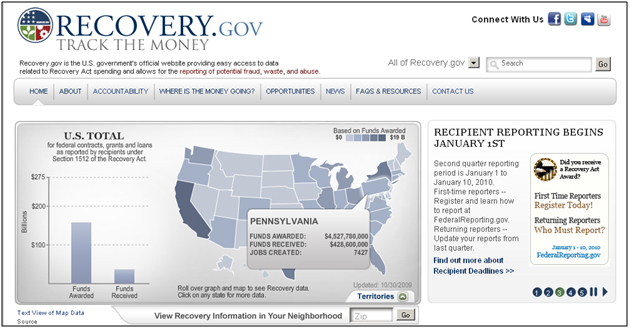
 The
The